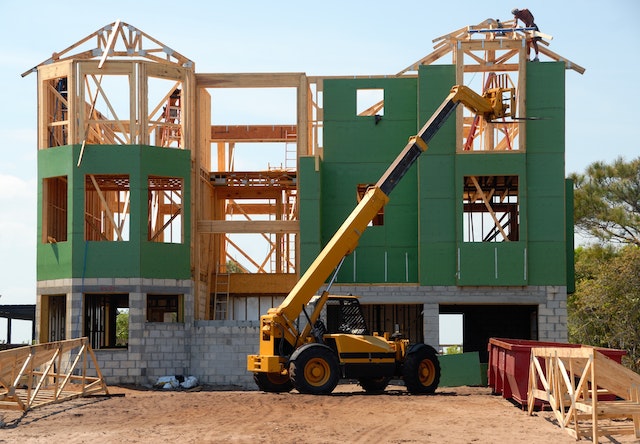Building a house is an exciting endeavor that requires careful planning and consideration. As prospective homebuilders, you should know five key things to navigate this process successfully. Understanding your budget and financing options will help you make informed decisions about the financial aspects of your project. Choosing the right location and lot is crucial for creating a home that suits your lifestyle and maximizes its potential value.

Designing your dream home involves translating your vision into detailed plans and collaborating with professionals. Selecting the right builder and effectively managing the construction process is vital to ensuring your vision is realized and the project runs smoothly. Navigating permits, inspections, and legal considerations is essential to ensure compliance and avoid potential delays or legal issues.
1. Understand Your Budget and Financing Options
Before embarking on the journey of building a house, it’s essential to understand your budget and explore financing options. Assess your financial situation and assemble a budget for how much you can spend on your new home.
Consider down payment, monthly mortgage payments, and other associated costs like taxes and insurance. Research financing options such as construction loans, a new build mortgage, or other programs to help fund your project. Understanding your budget and financing options will enable you to make informed decisions throughout the homebuilding process and ensure that your dreams align with your financial capabilities.
2. Choose the Right Location and Lot
The location and lot you choose for your new home can significantly impact your lifestyle and future resale value. Research and consider factors such as proximity to amenities, schools, transportation, and the overall neighborhood.
Evaluate the lot size, topography, and orientation to assess whether it meets your needs and preferences. Additionally, consider factors like zoning regulations, utility availability, and any potential restrictions or limitations that may affect your building plans. Carefully selecting the right location and lot will help create a home that suits your lifestyle and maximizes its potential value.
3. Design Your Dream Home
Designing your dream home is an exciting aspect of building a house. Whether you want a tiny home, a mansion, or something in between, start by envisioning your ideal layout, features, and architectural style. Consider your current needs and future requirements, such as the number of bedrooms and bathrooms, open-concept living spaces, or specific amenities.
Work with an architect or designer to translate your vision into detailed plans and blueprints. Consider factors such as natural light, energy efficiency, and practicality. Engage in selecting materials, finishes, and fixtures to bring your design to life. Collaborating with professionals and investing time in thoughtful design will create a home that reflects your style and meets your functional needs.
4. Select the Right Builder and Manage the Construction Process
Selecting the right builder is crucial to ensure a successful homebuilding experience. Research and gather information about reputable builders in your area. Look for builders with a solid reputation, relevant experience, and positive customer reviews. Schedule meetings and interviews to discuss your project, ask questions, and assess their communication style and ability to understand your vision. Request references and visit their previous projects to see the quality of their work firsthand.
Once you’ve chosen a builder, establish clear expectations and write a detailed contract outlining the scope of work, timelines, payment schedules, and warranty provisions. Regularly communicate with the builder throughout the construction process to stay informed about progress, address any concerns, and make decisions promptly. Collaborating effectively with your builder will ensure that your vision is translated into reality and that the construction process runs smoothly.
5. Navigate Permits, Inspections, and Legal Considerations
Navigating permits, inspections, and legal considerations is essential to building a house. Familiarize yourself with local building codes, regulations, and permit requirements. Work closely with your builder to ensure all necessary permits are obtained, and inspections are scheduled at the appropriate stages of construction. Compliance with building codes and regulations ensures your new home’s safety, quality, and legality.
Also, consult lawyers or real estate experts to address legal considerations, such as property boundaries, easements, or homeowners association rules. They can guide you through the legal aspects and help you understand your rights and obligations as a homeowner. By being proactive and diligent in navigating permits, inspections, and legal considerations, you can avoid potential delays, fines, and legal issues, ensuring a smooth and successful homebuilding process.
Your Dream Home Awaits
Selecting the right builder and effectively managing the construction process will ensure your vision is realized and the process runs smoothly. Lastly, navigating permits, inspections, and legal considerations is essential for compliance and a successful outcome. Armed with these insights, you are well-equipped to embark on your homebuilding journey, bringing your dream home to life and creating a space that reflects your unique vision and meets your needs.